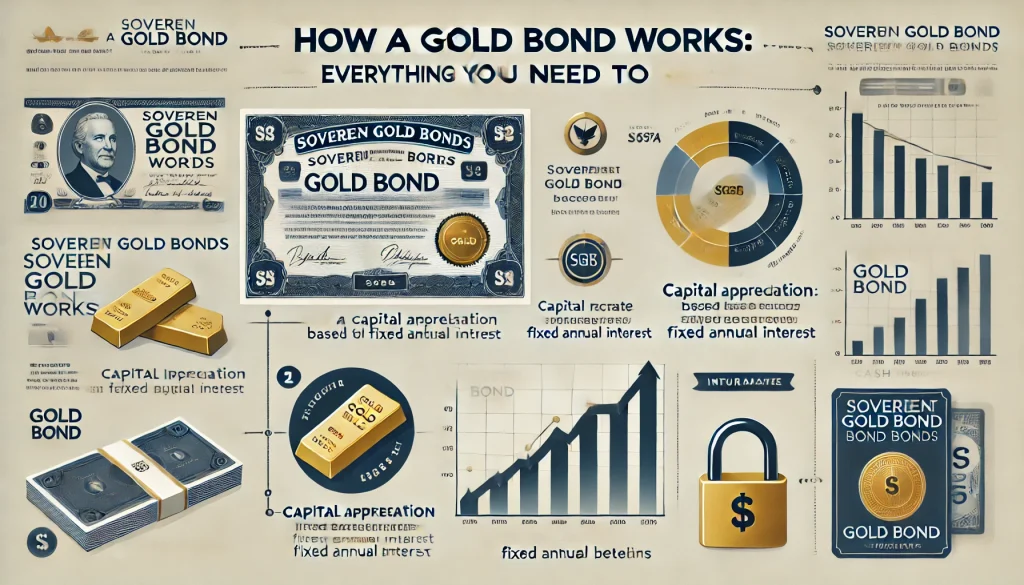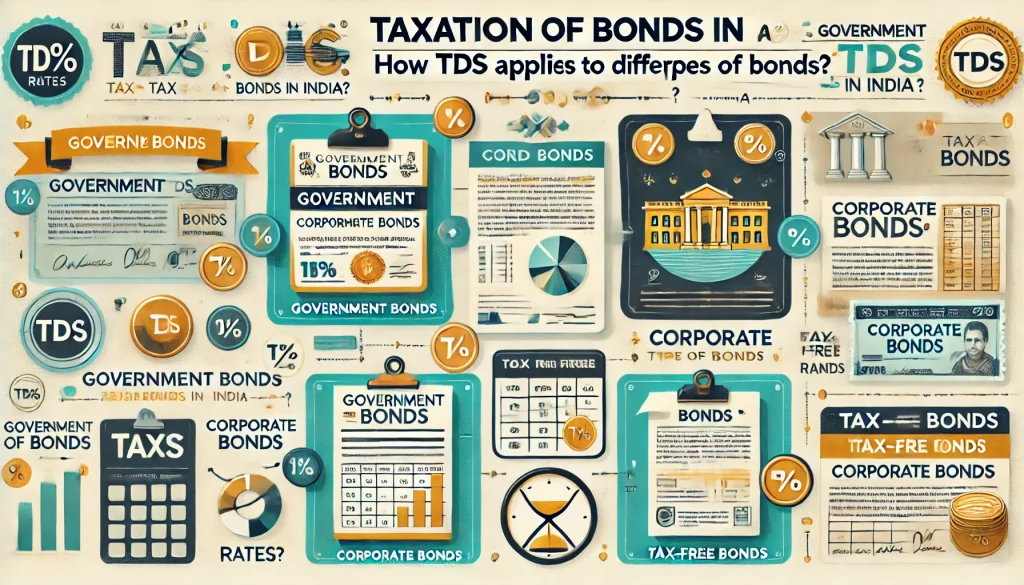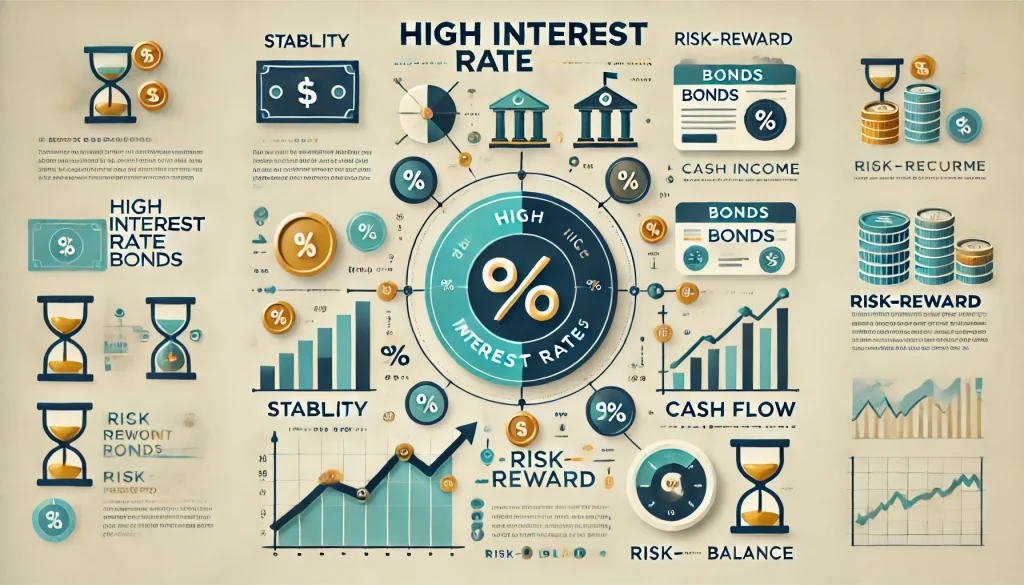
When it comes to fixed-income securities, bonds are the first choice of most investors. These assets come with a long-term investment horizon and generate interest at a fixed rate. However, to make an informed choice while purchasing bonds, understanding bond coupon rate is essential.
Keep reading to learn more.
What Is Coupon Rate in Bonds?
Bond coupon rate is the interest rate payable annually by the issuer on the bond’s face value. It is the predetermined rate at which investors receive interest throughout the security’s maturity period.
For instance, you buy a bond for ₹1,500 that provides an annual coupon payment of ₹500. Thus, throughout the bond’s maturity period, you will get ₹500 annually. This rate will remain the same even when you sell it to another investor. Although, based on market demand, they may pay less or more than you did for buying this asset, however, they will receive ₹500 annually till maturity.
Bond Coupon Rate Working
To get a fair estimate of how much you may earn by investing in a particular bond scheme, you need to know how to calculate bond coupon rate. To do so, you need to first determine the bond’s face value.
After this, find out the number of times this bond will make coupon payments during a year. Interest payments may be disbursed annually, semi-annually or quarterly. Then, calculate the total interest amount within a year and divide that number by the bond’s face value.
You will get the bond’s coupon rate.
Bond Coupon Rate Formula
You can easily calculate bond coupon rate by using this formula:
Coupon Rate = (Sum of annual coupon payments/bond’s face value) X 100
Let’s take an example for better understanding.
For example, you purchase bonds issued by DS Steel Works Ltd. for ₹2,000 which offers coupon payments worth ₹250 per quarter.
Thus, the annual coupon payments will be = ₹(250 * 4)
= ₹1,000
Therefore,
Coupon Rate = Annual Coupon Payment Amount/Bond’s Face Value * 100
= (250/2000) * 100
= 12.5%
Additionally, you can use a bond coupon rate calculator to accurately compute the interest rate of a bond scheme. It also comes in handy when you are comparing multiple bond offerings to find one that suits your financial goals.
How the Coupon Rate Affects the Price of a Bond
As mentioned before, the bond coupon rate remains the same throughout its maturity period. Thus, if the market’s ongoing interest rate is higher than the bond’s coupon rate, the asset’s price will fall. This is because investors will be reluctant to buy the bond as they can get higher returns from other assets.
Alternatively, if the market’s interest rate falls below the bond’s coupon rate, there will be an increase in demand for the security among investors, resulting in a price rise.
Difference Between Bond Yield and Coupon Rate
Now that you understand the relationship between bonds and coupon rates, it’s time that we cover the difference between bond yield and coupon rate. Take a look at the table below:
| Bond Yield | Coupon Rate |
| Bond yield is the total income from a bond throughout its maturity period. | Coupon rate indicates the annual interest income by the bondholder. |
| Bond yield changes throughout the maturity period depending upon the asset’s market price. | Coupon rate remains the same throughout the maturity period regardless of changes in the bond’s market value. |
Bond Coupon Rate vs. Interest
To make an informed investment choice, you must also know the difference between bond coupon rate and interest rate:
| Bond Coupon Rate | Interest Rate |
| Coupon rate refers to the interest generated by a bond within a year. | Interest rate is the rate which lenders charge borrowers for providing loans. |
| It is calculated on the bond’s face value. | It is determined by factors like the loan amount, borrower’s creditworthiness, repayment tenure and present market conditions. |
| Bond coupon rates remain the same throughout the maturity period. | Interest rates tend to change if you opt for a flexible one. Apart from that it also depends upon factors like prevailing market conditions and government policies. |
| Bonds having higher coupon rates will have lower interest rate risks and vice versa. | Interest rates are not affected by the coupon rate of bonds. |
Alternative to Coupon Rate
To make an informed investment decision, there are several alternatives to the bond coupon rate which you can consider checking. They are as follows:
- Tax-Equivalent Yield (TEY): It is the yield which a taxable bond must meet in order to match a comparable tax-exempt bond’s yield.
- Yield to Call (YTC): Yield to call refers to the total return which a callable bond generates if the owner holds it until its call date.
- SEC Yield: This yield was introduced by the Securities and Exchange Commission (SEC) as a standard calculation method to make it easier for investors to compare different bond funds.
- Yield to Worst (YTW): Yield to worst indicates the lowest value which a bond can generate under various economic situations.
What Are Zero-Coupon Bonds?
Zero-coupon bonds are debt securities which do not provide annual interest payments. The issuer sells these assets below their face values and investors can redeem the bond’s entire face value at maturity.
For instance, SB Motors Pvt Ltd. issues zero-coupon bonds with a face value of ₹1,500 and sells them at a discounted price of ₹1,000. Thus, after maturity, investors can redeem their assets at the ₹1,500 face value and make a profit of ₹500 per bond.
Conclusion
Given that the bond coupon rate remains unchanged throughout the maturity period, it is essential that you buy bonds at the right time to make your investment profitable. This is especially true when you are purchasing these assets from the secondary market.
Additionally, you can consider buying bonds firsthand in order to get the best possible return from them.
FAQs
No, all bonds do not pay coupon rates. For example, zero-coupon bonds do not provide any interest during their investment tenure. These assets enable investors to redeem them at face value after maturity.
Yes, zero-coupon bonds are prone to interest rate risks. If the prevailing market rate is high at the time of maturity, the bond’s maturity amount may decline in value and vice versa.
A 5% coupon bond means that the asset generates returns at the rate of 5% annually.
Discount to bond coupon rate is the amount by which a bond’s market price is lower than its principal amount upon maturity.


